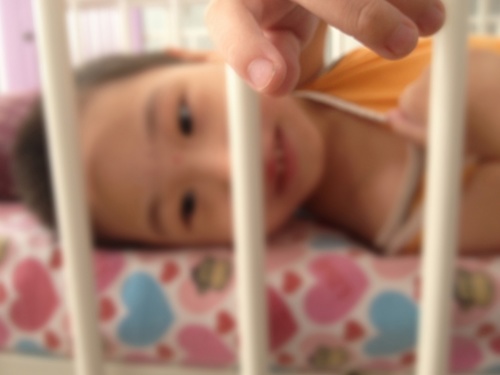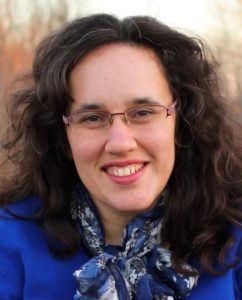My love for China started in 1973 when I was adopted by Chinese immigrants in America. My heart for adoption sent me to China in 2007 to welcome my adopted Chinese daughter into my family. These two elements of who I am brought me and my family to live, breathe, and become a part of China’s heartbeat in Tianjin five years ago.
Upon arriving in Tianjin, my family and I were ready to pour love upon the people we would cross paths with. Over the course of four years several dots in my heart and mind, as an adopted child, were connecting. These connections intersected with what I was experiencing in Tianjin for the first time, making profound changes in my understanding of who I am.
Presently, as I’m re-patriating to my passport country, I am gradually sifting through the everyday experiences and special adventures that became my China life. In the midst of this contemplative reflection, I have discovered that often I was the one upon whom love was poured and there is so much I long to do to give back to the people in the land I love.
Amongst various experiences shaping my heart in Tianjin, one stands out bold and bright. Spending time with the “orphans in my backyard” brought forth the opportunity to look beyond myself and reach out in tangible ways to disabled orphan children at Tianjin Children’s Welfare Institute (TJCWI). Through the privilege of volunteering as chairperson of International Committee for Chinese Orphans (ICCO) while living in Tianjin, I learned many valuable lessons for which I am extremely grateful.
Fondly, I re-visit, in my mind the times I spent with the orphans; fundraising, communicating, and attempting to help to the best of my giftings and abilities. The orphan community that I was a part of reminds me of a bowl of hot, freshly cooked, red beans like my mother made for me growing up. Each week I visited these precious orphans, like my little hondou 我的红豆 (my red beans) tender and sweet swirling together in the steaming, fragrant soup—their community of many people (leaders, doctors, ayis (nannies), medical ayis, teachers, physical therapists, cooks, maintenance staff, office staff, security staff) assisting them. The bowl which holds this community is the beautiful facility which houses these sweet beans.
Inside this facility, on the second floor, is the rehabilitation department. There are a few big rooms where the most severely disabled orphans live. One morning, as I approached a crib, amongst twenty cribs in one room, a voice caught my attention. A young voice delicately emitting high pitched words spoken in Tianjinhua 天津话 (Tianjing dialect), “Dollie Ayi zai nar?” (Where is Dollie Ayi?)

This eight year old boy saw me, Ling Laoshi 林老师 (Teacher Ling), coming through the doorway. His bright Chinese eyes boldly connected with mine as I stood alongside his crib. Ling Ling 林林wondered where his waigouren 外国人 (foreign) friend has been. I could sense the deep guanxi 关系 (relationship) Ling Ling had established with Dollie Ayi. This American volunteer had not been to visit him in several weeks as the door at TJCWI was starting to close to ICCO volunteers. I compassionately looked upon this precious dou 豆 (bean). As my Western eyes circled around the room and viewed many other beautiful beans in this room an echo in my mind that I was hearing for months continued, “There are not enough hands…
not enough hands…
not enough hands.”
These sweet little beans that I have left behind have taught me many lessons that a textbook could not offer. First, presence. Second, listening to what is heard and noticing what is seen. Third, recognizing their needs. Fourth, raising awareness of their needs. Lastly, helping meet the needs in order to directly impact the lives of these disabled orphans there in the big bowl of red bean soup.
It starts with a heart that is open to share God’s love through presence and faithfulness. Each week I had the opportunity to visit with my sweet little beans. Guanxi grew deep within these relationships. Love reached to the unreachable. Prayers spoken over the freshest baby beans just entering the orphanage. Prayers whispered over the sick orphans. Prayers blanketing the children with severe disabilities lying in their cribs. Prayers surrounding the orphans participating in the education department. Praying that families seeking to adopt, would arrive for them soon.
During that time, there were 300-ish tender beans in the soup bowl. Disabilities varied greatly. Some with Down’s syndrome. Several deaf or blind. Many with cleft lip and palate or missing limbs. A few orphans with PKU (Phenylketonuria). Some with club feet. Several orphans living with hydrocephalus. Most orphans with varying degrees of cerebral palsy. Plenty of orphan children with heart conditions. Others with complications due to premature births. With all these needs, only two local physical therapists were on staff. The echo returns with the realization, “There are not enough hands…
not enough hands…
not enough therapists…
to meet these needs.”
Ling Ling was one of many lives that opened my mind to think more broadly about disabled orphans. Several months before I left China, I had a big dream: search for, locate, and invite a foreign physical therapist to work with the disabled orphans at TJCWI. A few months later, my big dream grew into a grandiose dream: build a university where foreign and Chinese adults come together to learn, teach, train, and equip others to be trained, skilled, and credentialed in physical therapy. A place where they can finish their studies and be sent out to serve disabled orphan children throughout China’s provinces. Potentially, this could be an opportunity to produce a plethora of eager, caring hands to improve the lives of disabled orphans and halt the “not enough hands” echo. I believe this will help their largest need: to help move their bodies with care and skill so that they can have a life beyond the barrier of their cribs.
So, I leave you with a question to ponder. Can society, the church, or individuals come together to share in this dream of creating a physical therapy university to train therapists equipped to help move the bodies of physically disabled orphan children in China? I encourage us to ponder. Wonder. Pray.

Christie Reenders
Christie Reenders (林 瑞 琼) is the adopted daughter of Chinese immigrant parents in America. She and her family spent several years in Tianjin where she was involved in serving disabled orphans as well as being immersed in Chinese life. View Full Bio
Are you enjoying a cup of good coffee or fragrant tea while reading the latest ChinaSource post? Consider donating the cost of that “cuppa” to support our content so we can continue to serve you with the latest on Christianity in China.